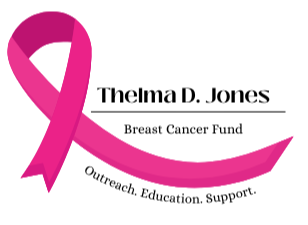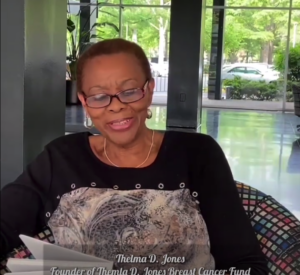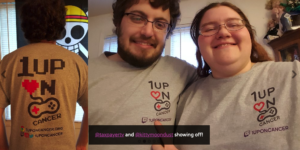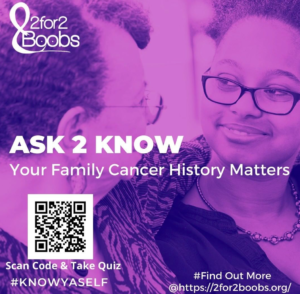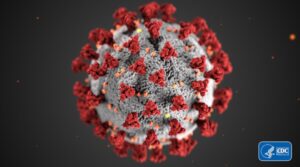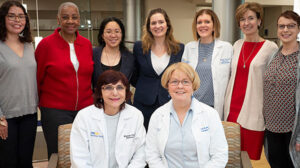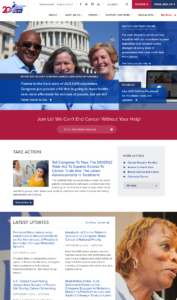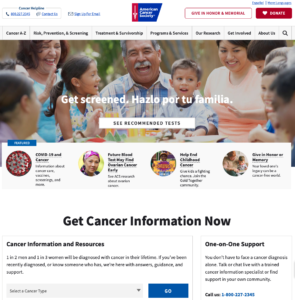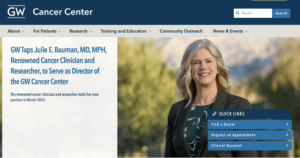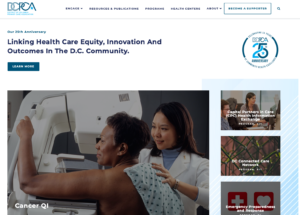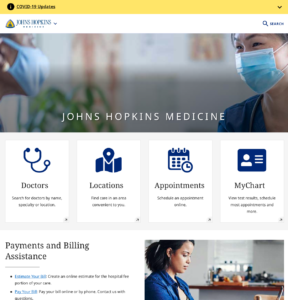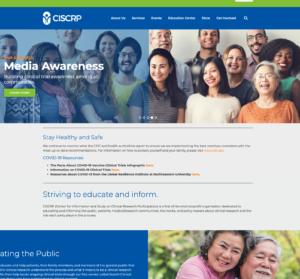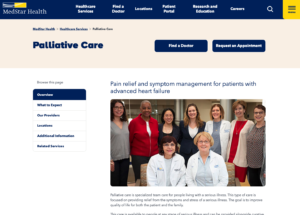Breast Cancer and COVID-19 – Get the Facts!
COVID-19
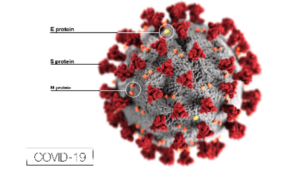
- What is coronavirus?
COVID-19 is the name of the illness caused by a new type of coronavirus that has led to a large outbreak, which was first reported in China in December 2019. The name of this coronavirus is “SARS-CoV-2.” Coronaviruses are a family of viruses that can cause common colds, as well as more serious respiratory diseases such as Severe Acute Respiratory Syndrome (SARS) and Middle East Respiratory Syndrome (MERS).
- How does the virus spread?
According to the CDC, the most common way for the virus to spread is during close contactwith another person. When somebody who is infected coughs, sneezes, talks, raises their voice (such as when shouting or singing), or even breathes, they can create respiratory droplets that contain the virus. These droplets might reach the mouths or noses of people who are in close contact (between 6 feet or up to 10 feet), which could lead to an infection. But there are other ways the virus might spread as well:
- Some small droplets and particles can linger in the air for minutes to hours. They can remain in the air even after the infected person has left and they can cause new infections, especially in enclosed spaces that are not well ventilated.
- Respiratory droplets can also land on surfaces, which people might then touch. This could potentially lead to an infection if a person then touches their mouth, nose, or eyes.
- The COVID-19 virus is also shed in the stool.
Cancer and COVID-19 
- Some people who are infected but do not have symptoms (that is, are asymptomatic) may still be able to spread the virus. Because of this, it’s important that everyone follow the CDC’s and other health departments’ recommendations on how to protect yourself and others.
- Should I wear a face mask?
The CDC recommends that you wear a cloth face cover (something that covers your nose, mouth, and much of your face) or a face mask if you go out in public, especially in places where you might be close to other people, including specific standards the mask should meet. Remember you can get COVID-19 from family and friends. You should wear your mask at all times, even indoors. The only exception is if you have been in quarantine with the same individuals such as family members for the past 14 days.
- The CDC does not recommend that people in the general public wear surgical or N95 masks. These are in short supply in many areas and should be saved for healthcare workers who need them when caring for people who are sick.
- Does having cancer increase your risk for health complications from COVID-19?
It appears that patients with cancer and survivors of cancer may be at higher risk of health complications from COVID-19. This is not surprising given that this group of individuals is often immune compromised. There is emerging evidence that patients with hematological malignancies, including leukemia, lymphoma, and multiple myeloma, may be at greater risk of infection and complications than patients with other cancer diagnoses. There is also evidence that patients with progressing cancer when they are diagnosed with COVID-19 may be at higher risk of death or serious health complications compared with those with disease in remission.
- Please follow these 3 recommendations to keep yourself and your loved ones safe: Wash your hands, wear a mask, and keep a distance of at least 6 feet.
- Should Breast Cancer Survivors follow the CDC health guidelines?
Absolutely. The general public health recommendations issued by the U.S. Centers for Disease Control and Prevention (CDC) make good sense at any time, but more so during times such as the COVID-19 outbreak. You can find the CDC guidance here on its website.
- I am a survivor of cancer who receives regular scans/imaging/tests to detect potential recurrence. Should I keep getting this testing?
This is a decision that you should discuss with your health care team. In general, as recommended by the CDC, any clinic visits that can be postponed without risk to the patient should be postponed. This includes routine surveillance visits to detect cancer recurrence.
Cancer and COVID-19 
You should consult your doctor before you cancel any upcoming visits. If you develop any symptoms that might indicate cancer recurrence, you should contact your cancer care team and not wait for the next scheduled evaluation.
- What does it mean to be “immune compromised”?
The term ‘immune compromised’ refers to individuals whose immune system is considered weaker, more impaired, or less robust than that of the average healthy adult. The primary role of the immune system is to help fight off infection. Individuals with compromised immune systems are at a higher risk of getting infections, including viral infections such as COVID-19. There are many reasons that a person might be immune compromised: health conditions such as cancer, diabetes, or heart disease, older age, or lifestyle choices such as smoking can all contribute to weakened immune systems. Patients with cancer may be at greater risk of being immune compromised depending on the type of cancer they have, the type of treatment they receive, other health conditions, and their age. The risk of being immune compromised is typically highest during the time of active cancer treatment, such as during treatment with chemotherapy.
- If a person is about to start cancer therapy, should they consider postponing treatment due to COVID-19?
In general, there should be no delay in initiating cancer treatment but only your health care team can make that decision with you. There are many factors to consider when making an important decision such as postponing cancer treatment to avoid a potential infection with COVID-19. Patients should talk with their treating oncologist about the risks of postponing treatment versus the potential benefit of decreasing their infection risk. Things to discuss include the goals of cancer treatment, the likelihood that the cancer will be controlled with the treatment being planned, the intensity and side effects of the cancer treatment, and the supportive care that is available to reduce the side effects of treatment.
- I am in the process of diagnosis and staging for cancer. What should I do?
Please keep all your appointments. When possible, try to have virtual appointments. You should discuss with your oncologist what diagnostic and staging tests are likely to be most informative in developing an initial treatment plan and should prioritize obtaining those tests if possible.
- I have several chronic diseases as well as cancer. Am I at higher risk for COVID-19? Does it matter if those comorbidities are controlled by medication?
Patients with comorbidities, such as hypertension, cardiovascular disease, pulmonary disease, chronic kidney disease, obesity, and diabetes, appear to be at particularly high risk of serious complications from COVID-19. The good news is that if these conditions are well controlled, the complications of COVID-19 are reduced. The extent of benefit is still unclear.
Cancer and COVID-19 
- Don’t forget about your vaccinations for influenza and pneumonia. Talk to your clinician about these important vaccines and make sure that you are up to date with them. This is especially important this year with the COVID-19 pandemic.
- Should I still get my mammogram this year, despite COVID-19?
Yes, breast imaging centers are now open for screening! If you postponed or cancelled your screening earlier in the year, call your doctor’s office and reschedule your appointment now. Annual mammograms are critical for breast health, and the pandemic has caused the number of screenings this year to decrease significantly.
- I feel a lump in my breast and am experiencing pain or other symptoms such as nipple discharge. Should I see my doctor?
Yes, call your doctor immediately. Ask about making an appointment for a diagnostic test as soon as possible. Medical centers are now accepting patients for both diagnostic and screening tests.
- Are Screenings & Diagnostics Still Happening During COVID-19?
Like much in the world right now, protocols for breast imaging centers have shifted according to CDC recommendations. However, screening mammograms are now back in progress along with diagnostic tests, just with COVID-19 measures to ensure safety.
- If I go to a breast imaging center, what can I expect?
Imaging centers have increased their measures on infection control. You will find that all staff are wearing masks and other protective gear, and you will be asked to wear a mask too. Social distancing practices are being implemented, including limiting the number of chairs in a waiting room, scheduling appointments further apart and limiting hours. You will be asked COVID-19 screening questions in advance of an appointment or before entering the facility. Before coming in for an appointment, ask what measures are in place so you are prepared and more comfortable.
- Am I at higher risk for contracting COVID-19 if I have breast cancer?
Breast cancer patients are among those who are at high risk of serious illness because their immune systems are often weakened by cancer and its treatments – particularly chemotherapy. Speak to your doctor about current recommendations that they have.
- How can I protect myself and help prevent the spread of COVID-19?
Use your judgment. Follow CDC’s guidelines and check often for updates. If you feel like you need to see a doctor, ask your local practice about telemedicine, but see a doctor when necessary. And most importantly, take care of yourself.
Cancer and COVID-19 
- How can I protect myself from COVID-19?
Everything medical experts have recommended is what everyone—including cancer patients—should be doing. Wash your hands and avoid touching your face. Stay inside as much as possible. Try to be as hygienic as possible, wiping down surfaces and cleaning your house regularly. Most importantly, wear a mask when you are around others. - Am I more at risk of contracting the coronavirus because of my treatments?
For breast cancer patients, chemotherapy tends not to be as toxic to the immune system (compared to chemotherapy for other kinds of cancers, like leukemia, which is generally more intense and wipes out the entire immune system). But chemotherapy can affect a patient’s ability to fight bacteria, and for that reason, they’re given injections to boost white blood cell counts. Cancer patients whose treatment protocols involve immunotherapy have a special set of concerns. In general, immunotherapy isn’t a widespread treatment for breast cancer, but it is sometimes used for subtypes like triple-negative breast cancer. Immunotherapy can affect the lungs, potentially making patients more vulnerable to COVID-19. Patients getting hormonal therapy may not feel completely normal during their treatments, but their immune systems are much less compromised. - What about if I have successfully completed treatment? Am I immunocompromised?
It depends on what type of treatment you received. Your clinician will check your white blood cell count and the lymphocytes. If the number is normal, your risk for contracting COVID-19 will be the same as your baseline before you were treated. You should talk to your doctor about any concerns or underlying conditions you have.
- Should I continue to go to chemotherapy and radiation treatments?
It’s fair to be concerned about getting treatment during the pandemic. Hospitals and treatment centers are aware of this and have put extra precautions in place to protect patients and staff. Things have changed since the start of the pandemic. By and large, it is safe to go to the doctor or a hospital, as long as you wear a mask and practice social distancing from other patients. Your treatment is important. Most of the time, doctors will try to keep treatments on schedule. But again, consult with your doctor about whether he or she advises any modifications. - What about mammograms and other routine screenings?
Early in the pandemic, hospitals and screening facilities closed due to COVID-19, and many women had their routine mammograms postponed or canceled. Patients showing symptoms of breast cancer did not experience large-scale disruptions. - If your doctor agrees, it is now safe to get your routine mammogram?
Since those initial closures, screening facilities have changed their waiting room layouts, check-in processes, cleaning procedures, and more, to make mammograms safe. If everyone is wearing a mask, your risk of contracting COVID-19 is low. Still worried? Make an early morning appointment to cut down on time in the waiting room. And if your mammogram was canceled, call to reschedule as soon as possible.
Cancer and COVID-19 
- What COVID-19 symptoms should breast cancer patients be on the lookout for?
The most important coronavirus symptoms to pay attention to are fever and shortness of breath. Breast cancer patients in treatment should always be on the lookout for those symptoms anyway. Call your doctor at the first sign. Other symptoms to be aware of, according to the CDC: chills, cough, a new loss of taste or smell, fatigue, muscle or body aches, headaches, sore throat, congestion, nausea or vomiting, and diarrhea. There are other symptoms that are not as common so please check the complete list on the above link. - How will COVID-19 impact breast cancer diagnoses and care?
The full effects of COVID-19 on breast cancer diagnoses and outcomes may not be realized until long after the pandemic, but we do know COVID-19 has complicated crucial aspects of cancer care. NCI forecasts suggest that over the next decade, the pandemic will result in nearly 10,000 additional deaths due to breast cancer and colorectal cancer. These numbers might be underestimated especially in communities where there were high health disparities prior to the Covid-19 pandemic.
- Are there different recommendations for cancer patients and caregivers?
The CDC does not have specific recommendations on masks for people who have or have had cancer and their caregivers. But for many people being treated for cancer, especially with treatments like chemotherapy or stem cell (bone marrow) transplants that can weaken the immune system, doctors often recommend patients wear a mask to help lower exposure to germs that might cause infections. If you’re not sure if you or your caregiver should be wearing a mask, contact your doctor or another member of your cancer care team.
- What else do cancer patients and caregivers need to know about COVID-19?
Doctors are still learning about the possible risks of COVID-19 infection for cancer patients. But they do have a lot of information regarding the patients. Avoiding being exposed to the virus that causes COVID-19 is especially important for cancer patients, who might be at higher risk for serious illness if they get infected. This is particularly true for patients who are getting chemotherapy or a stem cell (bone marrow) transplant, because their immune systems can be severely weakened by the treatment.
- The pandemic is also affecting the way many people get medical care, including patients with cancer. Depending on the COVID-19 situation where you live, this may mean a delay in having cancer surgery or care that’s meant to keep cancer from returning. Some people may need to reschedule appointments.
- Cancer care teams are doing the best they can to deliver care to their patients. However, even in these circumstances, it isn’t life as usual. It’s important to keep in contact with your
Cancer and COVID-19 
cancer care team to determine the best course of action for you. This may involve talking to your care team virtually (online or over the phone) and not physically going to the clinic.
- Many clinics and infusion centers have made changes to allow you to come in safely for an in-person visit as well as treatment. These might include screening for COVID-19 symptoms ahead of your visit, proper spacing of waiting room and infusion chairs, spacing out appointments to limit the number of people in the waiting room at one time, requiring people to wear a face cover, and cleaning all surfaces frequently. It’s important to know who to call to reach your cancer care team to find out how to proceed.
- You might have other options for getting your cancer medicines as well. For example, some people might be able to switch to oral medicines instead of having to go in for infusions. For some people, another option might be to get infusions of their cancer medicines at home. However, there are safety issues to consider with home infusions, and it’s important to discuss these with your health care team before deciding on getting treatment this way.
- The issues with getting cancer treatment and testing during this pandemic will take some time to resolve, and even then, there will likely continue to be changes in the way cancer patients receive their care.
- In the meantime, doctors need to learn more about cancer patients and COVID-19. Registries such as the COVID-19 and Cancer Consortium and studies such as the NCI COVID-19 in Cancer Patients Study are actively collecting data. Early studies from registries in the US and around the world have looked at outcomes for cancer patients who develop COVID-19 with symptoms, as well as if certain anti-cancer treatments change these outcomes. These initial study results are helpful, but it is very important to gather more data and analyze it over a longer time to better understand the effects of COVID-19 on current and former cancer patients. Contact your doctor if you are interested in participating in a registry or study.
- Should people still get screened for cancer during this pandemic?
In many places affected by the pandemic, elective medical procedures, including cancer screening, have been put on hold to conserve medical resources and reduce the risk of spreading COVID-19 in healthcare settings. Some states and other authorities have begun to re-open businesses and ease restrictions, while these remain in place in other places. Likewise, some health systems are starting to schedule cancer screening tests and exams again. So, what should you do if you’re due (or overdue) for a cancer screening?
Cancer and COVID-19 
- Decisions about getting screened depend on many factors, and they may not be the same for every person. Some important things to consider include your risk of getting a certain type of cancer, how long it’s been since you were last screened for it, how common COVID-19 is in your community, and your age and overall health. Talk to your health care provider about the risks and benefits for you of being screened now, and whether it might make sense to postpone it at this time. Remember that cancer screening can save lives, so it’s important to not just forget about it. Getting back on track with cancer screening at some point should still be a priority.
- Should I be concerned during my treatment for breast cancer?
If you have breast cancer and are on chemotherapy or immunotherapy, or you have metastatic breast cancer, your immune system may be weakened. This means you have an increased risk of getting sick from COVID-19.
- What if my breast cancer surgery is postponed?
Whether or not your surgery is postponed depends on your hospital and surgeon, as well as your state and local guidelines. Don’t worry if your surgery is postponed. If this happens, your breast cancer treatment may begin with chemotherapy or hormone therapy.
- What about the increased use of neoadjuvant (before surgery) therapy?
Many people get chemotherapy or hormone therapy before breast surgery. This is called neoadjuvant therapy. If you need chemotherapy, whether you get it before or after surgery doesn’t impact your survival.
- Neoadjuvant therapy is usually given to increase surgical options. If you have a large tumor, neoadjuvant therapy may shrink the tumor enough that a lumpectomy becomes an option to a mastectomy.
- If your breast cancer surgery is postponed due to the pandemic, you may get neoadjuvant therapy. If you will need chemotherapy after surgery, your doctor may start you on neoadjuvant chemotherapy first and do surgery later. Neoadjuvant chemotherapy is not given to people who don’t need chemotherapy.
- Some women with very small estrogen receptor-positive breast cancers who don’t need chemotherapy may get neoadjuvant hormone therapy for 6-12 months. After surgery, hormone therapy will be continued.
- Remember, survival is the same whether you get chemotherapy or hormone therapy before or after surgery. And, neoadjuvant therapy may increase the chance you can have a lumpectomy instead of a mastectomy.
- What if I am undergoing radiation therapy?
If you’ve already started radiation therapy, your treatment should continue. However, your treatment plan may be modified to decrease the number of times you have to go to the hospital during this pandemic.
Cancer and COVID-19 
- What about clinical trials?
Many clinical trials for breast cancer treatment are ongoing. If you’re in a clinical trial, there may be some changes to reduce your risk of exposure to COVID-19. For example, you may have fewer in-person doctor visits.
- Hospitals may have limited staff and resources during this pandemic. So, individual hospitals made decisions about the clinical trials they conduct. Some hospitals temporarily put enrollment of new participants in clinical trials on hold.
- Should I be worried if imaging (MRI, PET scan or other imaging) is postponed?
If imaging (MRI, PET scan or other imaging) related to a possible breast cancer diagnosis or related to your breast cancer is postponed and you have concerns, call your doctor.
COVID-19 Vaccine
- What is the status of the COVID-19 vaccine?
The U.S. Food and Drug Administration (FDA) granted emergency use authorization (EUA) to a COVID-19 vaccine from Pfizer/BioNTech, enabling distribution to begin to certain high-risk groups. The FDA also granted an EUA to a COVID-19 vaccine from the biotechnology company Moderna, Cambridge, MA.
This messenger RNA (mRNA) vaccine, which is part of a new approach to vaccination, was co-developed by NIH’s National Institute of Allergy and Infectious Diseases (NIAID). The science behind the mRNA vaccine has been around for over 10 years. There were many scientists who were working on a vaccine against this family of viruses and then their funding got cut off in 2016.
The EUA is based on data showing the vaccine is safe and 94.5 percent effective at protecting people from infection with SARS-CoV2, the coronavirus that causes COVID-19.
- How does the vaccine work?
The two vaccines currently authorized for administration in the United States work in a unique way. Their centerpiece is a small, non-infectious snippet of mRNA. Cells constantly produce thousands of mRNAs, which provide the instructions needed to make proteins. When someone receives an mRNA vaccine for COVID-19, it tells the person’s own cells to make the SARS-CoV-2 spike protein. The person’s immune system then recognizes the viral spike protein as foreign and produces antibodies to eliminate it.
This vaccine-spurred encounter trains the human immune system to remember the spike protein. So, if an actual SARS-CoV-2 virus tries to infect a vaccinated person weeks or months later, his or her immune system will be ready to fend it off. To produce the most vigorous and durable immunity against the virus, people will need to get two shots of mRNA vaccine, which are spaced several weeks to a month apart, depending on the vaccine.
- Will my DNA be altered?
Concerns on social media were raised that mRNA vaccines might alter the DNA genome of someone being vaccinated. But that’s not possible, since this mRNA doesn’t enter the nucleus of the cell where DNA is located. Instead, the vaccine mRNAs stay in the outer part of the cell (the cytoplasm). What’s more, after being transcribed into protein just one time, the mRNA quickly degrades. Others have expressed concerns about whether the vaccine could cause COVID-19. That is not a risk because there’s no whole virus involved, just the coding instructions for the non-infectious spike protein.
An important advantage of mRNA is that it’s easy for researchers to synthesize once they know the nucleic acid sequence of a target viral protein. So, the gift of mRNA vaccines is one that will surely keep on giving. This new technology can now be used to speed the development of future vaccines.
- The vaccine was developed so quickly; is it safe?
Despite the impressive speed at which the new COVID-19 vaccines were developed, they have undergone and continue to undergo a rigorous process to generate all the data needed by the FDA to determine their long-term safety and effectiveness.
- When will all Americans be vaccinated?
It will be many months before all Americans who are willing to get a vaccine can be immunized. We need 75-80 percent of Americans to receive vaccines in order to attain the so-called “herd immunity” needed to drive SARS-CoV-2 away and allow us all to get back to a semblance of normal life.
The FAQs were compiled by Jacqueline Beale, Two-Times Breast Cancer Champion and the TDJBCF Evelyn B. Curtis Spirit Awardee. All FAQs are retrieved from various sources as noted in the “References”.
The FAQs were reviewed by Jehan (Gigi) El-Bayoumi, MD, FACP, Founding Director, Rodham Institute, Professor of Medicine, The George Washington University School of Medicine and Health Sciences. Dr. El-Bayoumi is a breast and kidney cancer survivor and a staunch supporter of the TDJBCF.
References
All Information is directly referenced from the following sources:
American Cancer Society – https://www.cancer.org/latest-news/common-questions-about-the-new-coronavirus-outbreak.html
Breast Cancer Research Foundation – https://www.bcrf.org/coronavirus-covid-19-and-breast-cancer-common-questions-and-answers
Breast Cancer Screening and COVID-19: What Patients Need to Know Now
BREM Foundation – https://www.bremfoundation.org/breast-cancer-covid19-faqs
Cancer.net – https://www.cancer.net/blog/2020-06/common-questions-about-covid-19-and-cancer-answers-patients-and-survivors
MD Anderson Cancer Center – https://www.mdanderson.org/cancerwise/breast-cancer-survivor–dont-let-coronavirus-covid-19-keep-you-from-getting-your-mammogram.h00-159383523.html
Susan G. Komen – https://komennctc.org/covid-19-resources-faqs-2/breast-cancer-and-covid-19-faq/
National Institutes of Health – https://directorsblog.nih.gov/2020/12/22/celebrating-the-gift-of-covid-19-vaccines/
